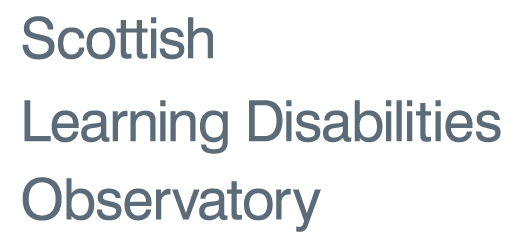Cancer screening and learning disabilities

Background
Cancer screening can save lives if people participate. People with learning disabilities participate in screening less often than other people. This project aimed to identify the barriers and facilitators people with learning disabilities face to accessing cancer screening and develop interventions to improve cancer screening access for people with learning disabilities in collaboration with people with learning disabilities, carers, and people in relevant professional roles.
What we did
This project had four stages: 1) a systematic review of interventions to improve screening access for people with learning disabilities; 2) semi-structured interviews on screening experiences; 3) participatory workshops to develop recommendations to improve screening access; and 4) focus groups on the acceptability of interventions to increase bowel screening uptake. Stage 4 focused on bowel screening because people with learning disabilities are at an increased risk of bowel cancer.
What we found
Stage 1: The systematic review included 32 reports that covered 30 different interventions. Their effectiveness was mixed, but multi-strategy interventions targeting access barriers across individual, provider, and organisational levels were more effective.
Stage 2: Twenty-nine people with learning disabilities, nine carers/supporters, and 55 people in relevant professional roles took part in semi-structured interviews. Barriers and facilitators to screening were identified within six themes: automatic motivation (e.g. fear), reflective motivation (e.g. weighing up potential harms), psychological capability (e.g. accessible information), physical capability (e.g. reliable transportation), social opportunity (e.g. support), and physical opportunity (e.g. accessible equipment).
We combined Stage 1 and Stage 2 findings to develop recommendations to increase cancer screening uptake.
Stage 3: Seven people with learning disabilities, six carers/supporters, and 12 professionals attended the workshops. We presented the recommendations to improve cancer screening uptake at the workshops and asked participants to provide feedback. Through discussion, four key areas were identified for intervention development: 1) accessible invitation and results letters, 2) educational resources for healthcare providers, 3) systems to identify people with learning disabilities, and 4) patient navigation.
Stage 4: We held two focus groups of three participants with learning disabilities and one focus group of eight people in relevant professional roles to refine the interventions from Stage 3 to improve bowel screening access among people with learning disabilities.
What these findings mean
Our findings highlight unique cancer screening barriers experienced by people with learning disabilities, and potential interventions. Our findings add to the growing evidence informing the development of interventions targeting cancer screening access and uptake among people with learning disabilities.
Outputs
We created two outputs in collaboration with people with learning disabilities to help share the findings from this research project in an easier-to-understand format. You can watch a short animation about the findings here. You can also download a copy of the A4 infographic that we produced, via this link.
If you have any questions about this research, please contact Dr. Lauren Fulton via Lauren.Fulton@glasgow.ac.uk
